General Literature Bibliography
Anderson, S.M. (2014). Applied literature for healing, transformation and empowerment. International Journal of Applied Linguistics and English Literature, 3(6), 89-97. Retrieved from https://journals.aiac.org.au/index.php/IJALEL/article/view/1183/1117
Anstett, R.E., Poole, S.R. (1983). Bibliotherapy: An adjunct to care of patients with problems of living. Journal of Family Practice,17(5), 845-848. Retrieved from http://psycnet.apa.org/record/1984-20965-001
Brewster, L., Sen, B.A. and Cox, A.M. (2013). Mind the Gap: Do Librarians Understand Service User Perspectives on Bibliotherapy? Library Trends,61(3): 569-586. Retrieved from http://eprints.whiterose.ac.uk/75800/1/61.3%20Sen.pdf
Calhoun Jr, G. (1987). Enhancing self-perception through bibliotherapy. Adolescence, 22(88), 939-943.
Chamberlain, D., Heaps, D., Robert, I. (2008). Bibliotherapy and information prescriptions: a summary of the published evidence-base and recommendations from past and ongoing Books on Prescription projects. Journal of Psychiatric and Mental Health Nursing, 15(1), 24-36. Retrieved from https://www.ncbi.nlm.nih.gov/pubmed/18186826
Cress-Ingebo, R. and Chrisagis, X. (1998). Try a good book bibliotherapy as spiritual care. Journal of Christian Nursing, 15(2), 14-17. Retrieved from http://journals.lww.com/journalofchristiannursing/Citation/1998/15020/TRY_A_GOOD_BOOK__Bibliotherapy_As_Spiritual_Care_.7.aspx
Davis, P., Billington,J. (2016). The Very Grief a Cure of the Disease. Changing English-Studies in Culture and Education,23(4),396-408. Retrieved from http://www.tandfonline.com/doi/abs/10.1080/1358684X.2016.1194188
Detrixhe, J.J. (2010). Souls in jeopardy: Questions and innovations for bibliotherapy with fiction. Journal of Humanistic Counseling, Education and Development,49(1), 58-72. Retrieved from http://onlinelibrary.wiley.com/doi/10.1002/j.2161-1939.2010.tb00087.x/abstract
Favazza, A.R. (1966). Bibliotherapy - a critique of literature. Bulletin of the Medical Library Association 54(2),138-141. Retrieved from https://www.ncbi.nlm.nih.gov/pmc/articles/PMC198402/pdf/mlab00175-0058.pdf
Fincher, J.P. (1980). Bibliotherapy: Rx-literature. South Med J,73(2), 223-225. Retrieved from https://www.ncbi.nlm.nih.gov/pubmed/7355323
Forrest, M.E. (1998). Recent developments in reading therapy: a review of the literature. Health Libraries Review,15(3), 157-164. Retrieved from http://onlinelibrary.wiley.com/doi/10.1046/j.1365-2532.1998.1530157.x/epdf
Forgan, J.W. (2002). Using bibliotherapy to teach problem solving. Intervention in School and Clinic,38(2), 75-82. Retrieved from http://journals.sagepub.com/doi/pdf/10.1177/10534512020380020201
Graham, M.A., Pehrsson, D.E. (2009). Bibliosupervision: A creative supervision technique. Journal of Creativity in Mental Health,4(4), 366-374. Retrieved from http://www.tandfonline.com/doi/abs/10.1080/15401380903372661
Grahlmann, K., Linden, M. (2005). Bibliotherapy. Verhaltenstherapie, 15(2), 88-93.
Gray, E., Kiemle, G., Davis, P., Billington, J. (2016). Making sense of mental health difficulties through live reading: an interpretative phenomenological analysis of the experience of being in a Reader Group. Arts & Health,8(3), 248-261. http://www.tandfonline.com/doi/abs/10.1080/17533015.2015.1121883?journalCode=rahe20
Heath, M.A., Sheen, D., Leavy, Young, E., Money, Kristy, M. (2005). Bibliotherapy - A resource to facilitate emotional healing and growth. School Psychology International,26(5), 563-580. Retrieved from http://journals.sagepub.com/doi/pdf/10.1177/0143034305060792
Hodge, S.M., Robinson, J., Davis, P. (2007). Reading between the lines: The experiences of taking part in a community reading project. Medical Humanities,33(2),100-104. Retrieved from https://www.ncbi.nlm.nih.gov/pubmed/23674430
Howie, M. (1983). Bibliotherapy in social work. British Journal of Social Work, 13(1), 287-319.
Jack, S.J., Ronan, K.R. (2008). Bibliotherapy - Practice and research. School Psychology International,29(2),161-182. Retrieved from http://journals.sagepub.com/doi/abs/10.1177/0143034308090058
Jacobs, N.N., Mosco, E. (2008). Bibliotherapy as an Adjunctive Treatment: Read all About it. Evidence-Based Adjunctive Treatments, 7-39. Retrieved from https://www.researchgate.net/publication/279427648_Bibliotherapy_as_an_Adjunctive_Treatment_Read_all_About_it
Johnson, W.B. (1997). Toward guidelines for the development, evaluation, and utilization of Christian self-help materials. Journal of Psychology and Theology, 25(3), 341-353.
Justman, S. (2010). Bibliotherapy: Literature as Exploration reconsidered. Academic Questions 23(1), 125-135. Retrieved from https://link.springer.com/article/10.1007/s12129-009-9147-1
Lanza, M.L. (1996). Bibliotherapy and beyond. Perspectives in Psychiatric Care 32(1), 12-14.
Lanza, M.L. (1991). Literature: A vehicle for emotional connection between clinician and client. Archives of Psychiatric Nursing, 5(5), 313-318. Retrieved from http://www.sciencedirect.com/science/article/pii/0883941791900309
Latchem, J.M., Greenhalgh, J. (2014). The role of reading on the health and well-being of people with neurological conditions: a systematic review. Aging & Mental Health, 18(6), 731-744. Retrieved from https://www.ncbi.nlm.nih.gov/pubmed/24404813
Lenkowsky, R.S. (1987). Bibliotherapy: A review and analysis of the literature. The Journal of Special Education, 21(2), 123-132. Retrieved from http://journals.sagepub.com/doi/abs/10.1177/002246698702100211
Lindeman, B., Kling, M. (1968). Bibliotherapy: Definitions, uses and studies. Journal of School Psychology,7(2), 36-41. Retrieved from http://psycnet.apa.org/record/1969-11487-001
Longden, E., Davis, P., Billington, J., Lampropoulou, S., Farrington, G., Magee, F., Walsh, E., Corcoran, R. (2015). Shared Reading: assessing the intrinsic value of a literature-based health intervention. Medical Humanities,41(2), 113-120. https://www.ncbi.nlm.nih.gov/pubmed/26070845
Martensson, L., Andersson, C. (2015). Reading fiction during sick leave, a multidimensional occupation. Scandinavian Journal of Occupational Therapy,22(1), 62-71. Retrieved from https://www.ncbi.nlm.nih.gov/pubmed/25327900
Maurer, B.T. (2010). Telling it slant: using poetry as a venue for healing. JAAPA,23(4), 69. Retrieved from http://journals.lww.com/jaapa/Citation/2010/04000/Telling_it_slant__Using_poetry_as_a_venue_for.19.aspx
McCulliss, D. (2012). Bibliotherapy: Historical and research perspectives. Journal of Poetry Therapy,25(1), 23-38. Retrieved from http://www.tandfonline.com/doi/abs/10.1080/08893675.2012.654944?journalCode=tjpt20
McDowell, D.J. (1971). Bibliotherapy in a patients' library. Bulletin of the Medical Library Association,59(3), 450-457. Retrieved from https://www.ncbi.nlm.nih.gov/pmc/articles/PMC197614/pdf/mlab00156-0094.pdf
McKinney, F. (1975). Explorations in bibliotherapy. Personal involvement in short stories and cases." Psychotherapy 12(1), 110-117. Retrieved from http://psycnet.apa.org/record/1976-10239-001
McKnight, M. (2014). Information prescriptions, 1930-2013: an international history and comprehensive review. Journal of the Medical Library Association, 102(4), 271-280. Retrieved from https://www.ncbi.nlm.nih.gov/pmc/articles/PMC4188054/
Neelon, F.A. (2009). Enjoying and enduring: groups reading aloud for wellbeing. The Lancet 373(9672),1339-1340. Retrieved from https://www.ncbi.nlm.nih.gov/pubmed/19376449
Norcross, J.C. (2006). Integrating self-help into psychotherapy: 16 practical suggestions." Professional Psychology:Research and Practice, 37(6), 683-693. Retrieved from http://psycnet.apa.org/record/2006-22033-015
Noruzi, A. (2007). Webotherapy: reading web resources for problem solving. The Electronic Library, 25(6), 741-756. Retrieved from https://pdfs.semanticscholar.org/b327/6dea46d71a13ad22782090611226ee20d4b6.pdf
Pardeck, J.T. (1994). Using literature to help adolescents cope with problems. Adolescence, 29(114), 421-427. Retrieved from https://www.ncbi.nlm.nih.gov/pubmed/8085492
Ouzts, D.T. (1991). The Emergence of Bibliotherapy as a Discipline. Reading Horizons, 31(3),199-206. Retrieved from http://scholarworks.wmich.edu/reading_horizons/vol31/iss3/3/
